-
How to Maintain Good Oral Hygiene During the Holidays

Couple traveling for the Holidays.
The holiday season surrounds us all with friends and family, as well as delicious food and drink, seemingly around the clock! Turkeys, cookies, hams, pies, briskets, latkes, cheese plates, dumplings…not to mention the special toasts to the season of every shade. It can be challenging to maintain dental health with all these sumptuous challenges on every side, but Park 56 Dentistry can you navigate the holiday season with oral hygiene in mind. Here are our top tips.
- Keep Flossers Handy
Simple, inexpensive, and discrete, pocket flosser picks are the ideal solution for holiday parties, whether you’re hosting or spending a few hours at the office, the neighbors, a family party, or going out with friends. Stash a few in your favorite jacket, purse, or wallet, so you never have to have that less-than-fresh feeling in the midst of a celebration.
- Limit Your Exposure to Key Types of Food
It’s easier said than done, I know, but if you want to avoid dental damage, then you might want to limit your enjoyment of various kinds of foods, or at least know how best to enjoy them without damaging your teeth. These include:
- Sugary Foods: Sugar increases bacterial activity in your mouth, so be prepared to brush often if you have a hankering for sweets.
- Hard Foods: Think candy canes, nuts, and ice. Let the candies and ice melt in your mouth instead of using your teeth to crunch them up. Enjoy the roasted nuts, but don’t overdo it. It might seem like a good idea at the time, but these dense treats can take a toll on your teeth, eroding them and potentially causing cracks or chips.
- Dark Beverages: Red wine, coffee, hot cocoa, and cosmos are all delights of the season, but they can darken your teeth as well. If a whitened smile is important to you, then think before you drink and select light-colored or clear beverages.
- Chew Sugar-Free Gum
In addition to giving you a break from snacking and freshening your breath, a stick of gum can inspire your salivary glands to help out cleaning your mouth. Saliva neutralizes acids and helps purge bacteria from your mouth and teeth.
- Nibble Some Cheese
Although it might not be the best choice for your waistline during a period of the year known for fattening treats, noshing on bites of cheese in between sips of acidic beverages like soda and wine can raise the pH level of your mouth and prevent your teeth from suffering acidic enamel damage.
- Stay Hydrated
There are many reasons why it’s a good idea to refill your cup with water in between other types of beverages, but one of these is that water helps clean your mouth of food and bacteria, as well as keeping you feeling your best.
The holiday season doesn’t have to sideline your dental health awareness. By following these tips, you can make sure you enter your new year without the regrets of cavities, stained teeth or dental injury. While you’re thinking about it, contact Park 56 Dentistry to schedule your winter cleanings before and after the holidays, and keep your smile vibrant.
-
The Link Between Oral Health and Overall Well-Being
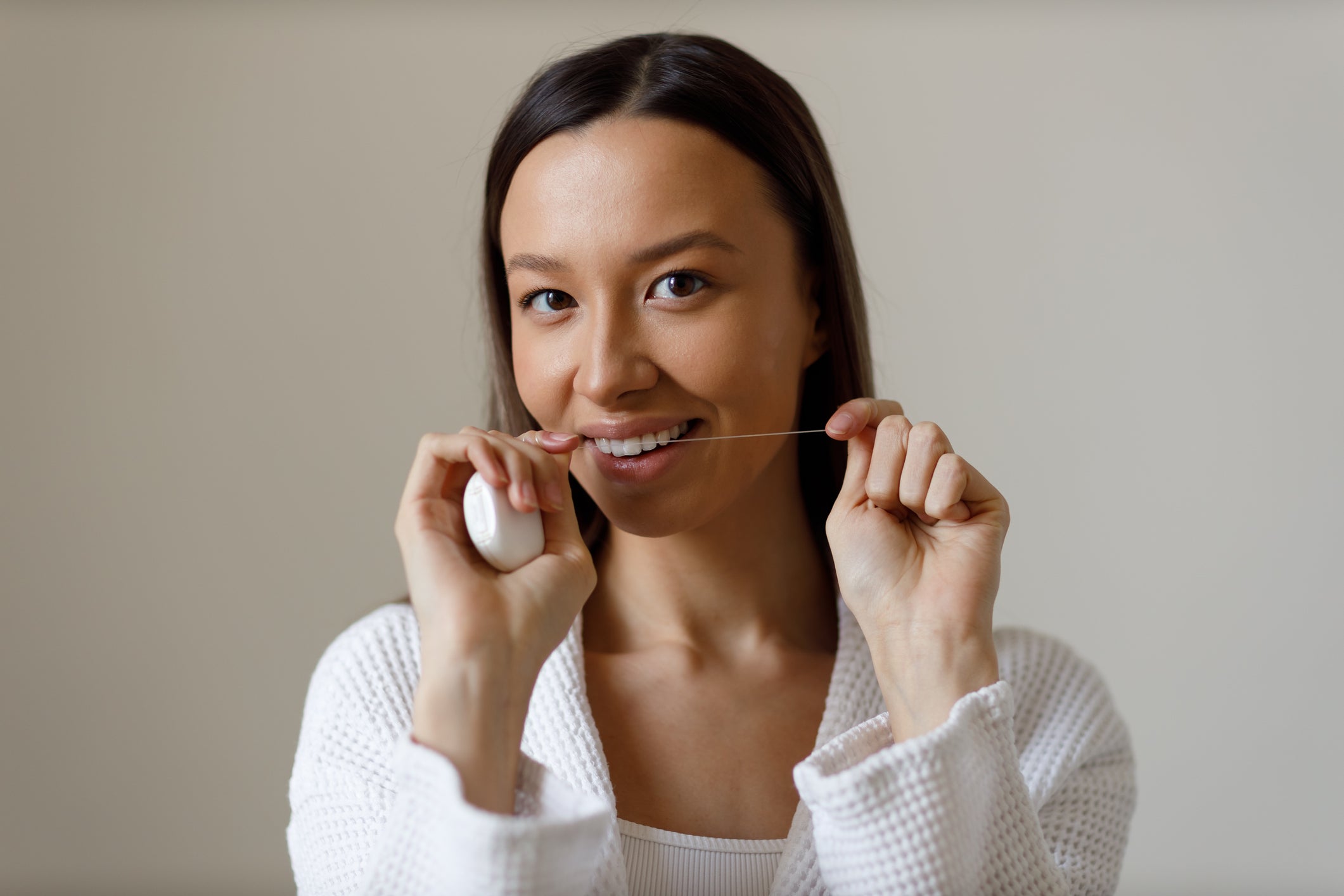
Woman caring for her dental health.
Good dental hygiene provides an extra boost of confidence. It’s easy to smile and share in conversations when you know your teeth are at their best. But aesthetics isn’t the only reason that you should be keen on keeping your mouth spic and span. Your overall wellness can depend on good dental routine, along with regular checkups and cleanings at your dentist. Let’s look at some of the different ways a healthy mouth can help you live a better life.
A Stitch in Time
Maintaining good dental hygiene practices, such as daily brushing and flossing, combined with regular dental checkups, can help you avoid issues such as cavities, gum disease and tooth decay. Left unchecked, these conditions can worsen to discomfort, infection, and tooth loss. Taking a proactive approach to your dental routine is the best way to stop problems before they can start.
Good For the Wallet
Fixing a serious dental problem is much more expensive than preventing the problem in the first place. The average root canal can cost anywhere from $700 to upwards of $2,000, depending on the tooth location. Dentures or dental implants cost even more. You can save yourself a headache, and a toothache, by proactively engaging in good dental hygiene.
For Your Health
Bad dental hygiene has been linked to serious health problems. Mouths are full of various types of bacteria, most of them harmless. But bacterial buildup from gum disease can contribute to bacteria entering the bloodstream and causing endocarditis, an infection of the inner lining of the heart’s chambers and valves. There is also a link between cardiovascular disease and gum disease, though scientists do not yet fully understand the connection. Inhaling the excess bacteria resulting from poor dental hygiene can even lead to respiratory disease and pneumonia.
Communication Matters
Your smile isn’t just for show; it’s an essential tool for communication. Dental problems like missing teeth can affect the way you talk, potentially causing confusion and eroding your social confidence. Maintaining proper oral health can help ensure your message stays on track.
Mental Health
Experiencing pain in your mouth is more than just an inconvenience. Dental problems can cause psychological issues and result in lower feelings of self-worth. On the other hand, a healthy smile can boost your confidence and increase your overall happiness.
Looking Out for Baby
For expectant mothers, oral health during pregnancy is crucial. Poor oral health has been associated with preterm birth and low birth weight. Hormonal changes during pregnancy can make women more susceptible to dental issues, underscoring the importance of dental care during this critical time.
The link between good oral health and overall well-being is undeniable. It’s not just about a dazzling smile; it’s about your physical, mental, financial, and emotional health. Park 56 Dental is here to be your partner in dental wellness. Voted NYC’s best dentist, we specialize in pediatric, prosthodontics, endodontics, oral surgery, Invisalign®, emergency, and sedation dentistry. Don’t skip those dental appointments. Keep up with your daily oral hygiene routine and address any oral health concerns promptly. Your smile reflects your overall well-being, so let us help you make it a healthy one.
-
How Chronic Illnesses Can Affect Oral Health
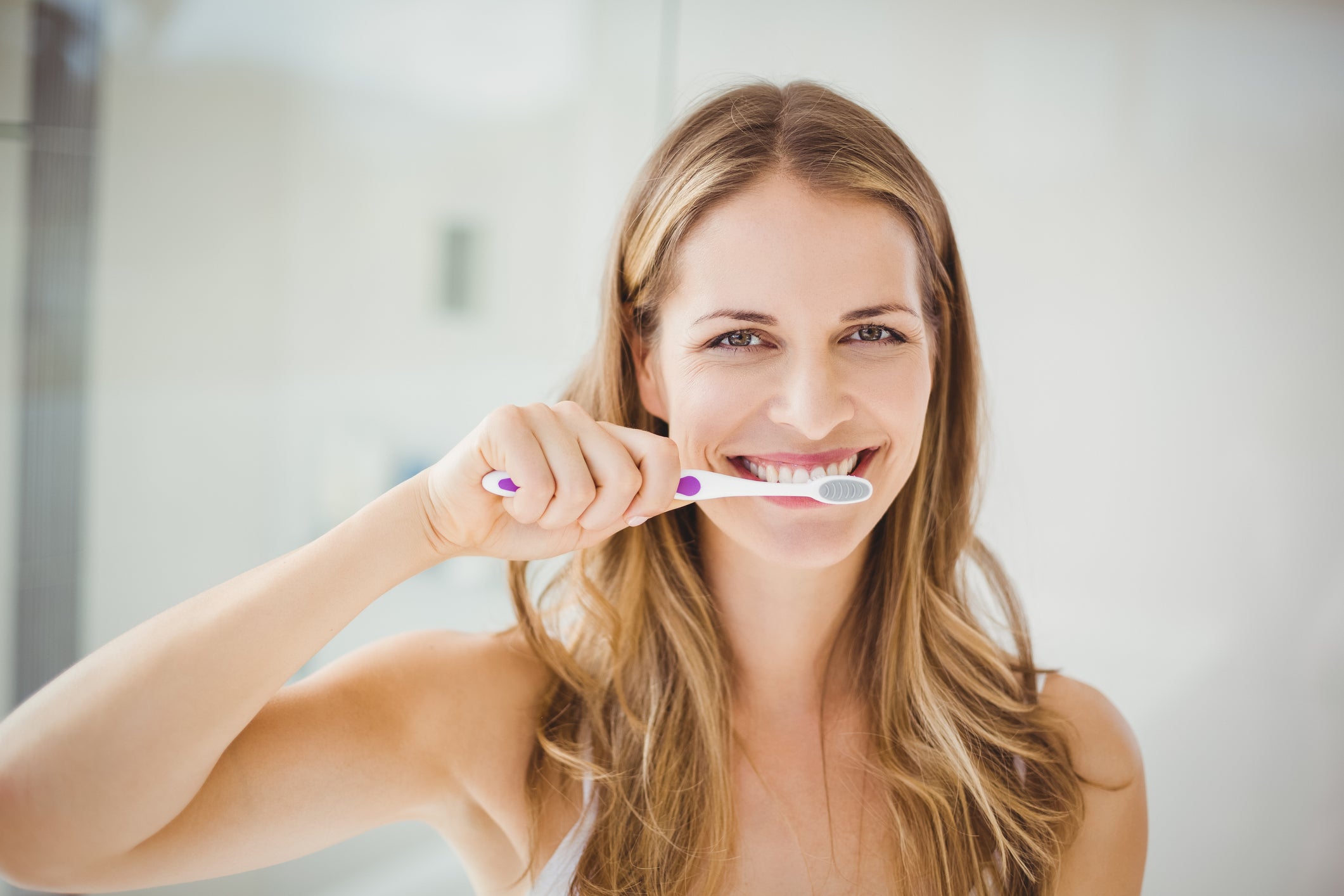 Woman taking care of dental health by brushing teeth.
Woman taking care of dental health by brushing teeth.Oral Health and Overall Health
Did you know that the health of your mouth and the overall health of your body are connected? In fact, there is a bidirectional relationship between chronic illness and oral health. Some chronic diseases are directly associated with oral health issues, either causing or being caused by them. In other cases, there’s an indirect relationship, or shared risk factors. Let’s take a look at how chronic illnesses can affect oral health.
Chronic Diseases are Leading Causes of Death and Disability
Conditions like diabetes, heart disease, respiratory disease, cancers, and obesity can all be linked with poor oral health. Because oral health conditions are often chronic, they can happen alongside other chronic conditions. Unfortunately, people with more than one chronic condition tend to have worse long-term health outcomes than those who only have one chronic condition. Prevention is the key to good health, and maintaining good oral health care can help prevent chronic diseases or improve the outcome for those who suffer from them.
Preventing Gum Disease Can Improve Health
Gum disease is very common, affecting about 75 percent of adults in the United States. If left untreated, gum disease can advance and increase the risk of serious health issues, like diabetes, heart disease/stroke, lupus, oral cancer, organ transplant, and rheumatoid arthritis. Fortunately, when detected early, gum disease can be reversed through good oral hygiene and regular dental care.
How Different Conditions are Connected
- Diabetes, periodontal disease, and tooth decay are interconnected. Though more research is needed, there is evidence to suggest that periodontal disease and tooth decay can exacerbate type 2 and gestational diabetes. This probably occurs because these conditions increase inflammation and blood sugar levels. By the same token, people who have diabetes are at higher risk of infections that can cause tooth decay and periodontal disease.
- Oral health issues may be associated with heart disease. Studies show that periodontal disease and tooth decay may increase a person’s risk of heart disease, or worsen existing heart conditions, by causing inflammation and damaging blood vessels.
- Tooth decay and periodontal disease may be associated with respiratory disease. There are studies that suggest that by causing an increase in bacteria, periodontal disease and tooth decay can increase the risk of respiratory conditions, including emphysema, pneumonia, and COPD, due to bacteria from the mouth colonizing in the respiratory tract. People at highest risk include older people, those who wear dentures, and people with decreased immune system function.
- Periodontal disease and tooth decay may be linked to some cancers. Even after controlling for other risk factors, like smoking and diet, there is evidence to suggest that oral health problems may be connected to cancers like lung, pancreatic, and head/neck cancers. In one study, a 35 percent increased risk for blood cancer and 21 percent increased risk for cancer in general for men with periodontal disease, and another suggests that there is also a 63 percent increased risk of pancreatic cancer. Still another study suggests a 43 percent higher risk of esophageal cancer and a 52 percent higher risk of stomach cancer for those with periodontal disease, as compared to people with healthy gums.
- Obesity may increase the risk of oral health issues. The result of preliminary research on obesity and oral health speculates that secretions from adipose tissue increase the risk of inflammation, decreasing immunity as well as blood flow to the gums.
Talk to Your Dentist About Your Medications
Sometimes, the drugs prescribed for chronic illnesses can cause side effects that impact their oral health. For instance, swollen and bleeding gums, along with dry mouth can be side effects of medications for hypertension and heart conditions. Some drugs for high blood pressure can cause gum overgrowth, which can lead to decay and progressive gum disease. Because inflamed gums bleed easily, there is also a risk for ulceration and soreness. Other medications for hypertension can reduce saliva production, putting patients at risk for dry mouth and tooth decay. Heart medications like anticoagulants and blood thinners can raise a patient’s risk for prolonged bleeding, and can cause gums to bleed during brushing. There is also a risk, with these medications, of post-extraction bleeding or bleeding during cleaning. Your dentist might want to talk to your doctor about changing your medication.
Partner with Park 56 for a Healthy Mouth
If you’re looking for a dentist in New York, why not choose the dentist voted best in the city? At Park 56 Dental Group, we offer pediatric, prosthodontics, endodontics, oral surgery, Invisalign®, emergency, and sedation dentistry, all at the highest level of treatment. We serve the Midtown, Central Park, Upper East Side, Park Avenue, and all surrounding Manhattan and New York areas, with a patient-centered practice that has hours to fit your schedule. Schedule your complimentary consultation today by contacting us online or calling us at (212) 826-2322.
-
Foods that Naturally Help Prevent Cavities
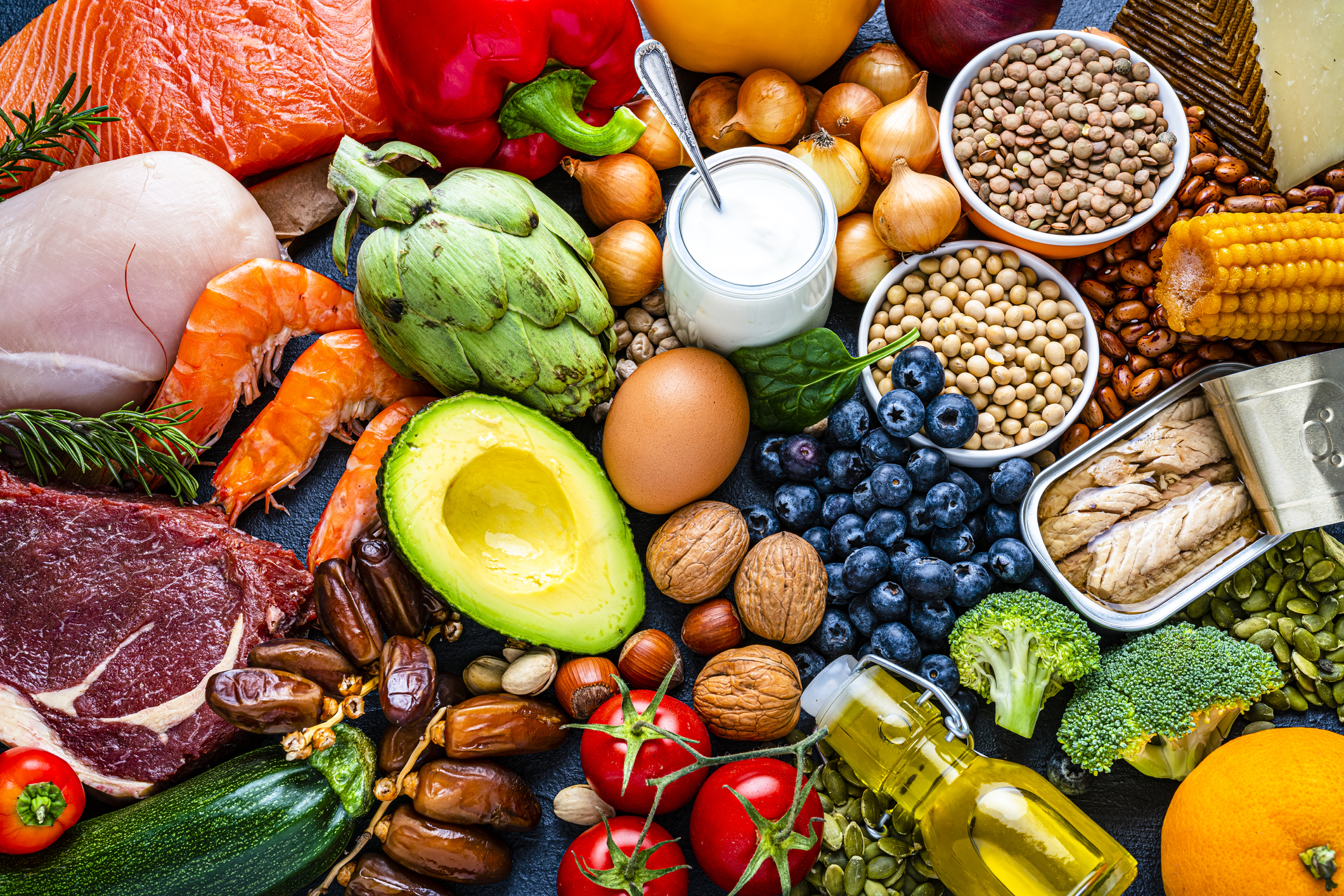
Healthy food for healthy teeth.
Avoiding Cavities
You have heard since childhood that eating too many sugary sweets will give you cavities. As an adult, you might even be aware that simple carbs, dried fruit, and acidic foods can all lead to the formation of cavities. What you may not know, though, is that you can be proactive in what you eat, and consume foods that actually prevent cavities instead of just avoiding foods. Read on- we’ve got the scoop on eating foods that are good for your teeth.
Healing Cavities
If you think about the human body, it’s pretty amazing, in the ways it heals itself. Our immune systems rush to repair damage caused by a wound or injury, which is remarkable. Did you know that the mouth can heal itself, too? Saliva helps remineralize your teeth and stop tooth decay in the early stages. However, as with other part of the body, the mouth’s healing process requires the support of the right vitamins and minerals. To heal cavities before they take hold, eat foods rich in the following nutrients:
- Calcium
- Vitamin D
- Vitamin K2
- Magnesium
- Phosphorus
- Xylitol
Understanding Cavities
Do you know how cavities form? It’s a complex process, and can take days, weeks, or even months. First, plaque forms when bacteria and food particles coat the surface of the tooth and are allowed to remain there. Plaque buildup increases as the plaque is fed by carbohydrates like sugars or bread, and as this happens, the plaque excretes acids that wear away at the tooth. If this is allowed to continue, the acid results in cavities, which are holes in the teeth. Once you have cavities, it makes it easier to spread infection and harder to maintain dental hygiene, creating a vicious cycle. That’s why it’s so important to fill your diet with foods that counteract cavities.
Foods that Help Prevent Cavities
While simple starches fuel cavity-causing bacteria, certain foods and drinks strengthen your teeth and lower the risk of cavities by reducing unhealthy bacteria in your mouth. Eggs and dairy provide vitamin D, and yogurt boosts immunity with probiotics. Another benefit of dairy foods, like milk, cheese, and yogurt, is that they’re rich in calcium, which strengthens bones and teeth. Other calcium rich foods include canned sardines and salmon (with edible bones), almonds, leafy greens, broccoli, seeds, beans and lentils, rhubarb, figs, and amaranth. Vitamin K2 helps the body move calcium from the bloodstream to bones and teeth, and this nutrient can be found in beef or chicken liver, chicken breast, butter, sauerkraut, ground beef, and salami. Beans are rich in phosphate, which helps remineralize teeth, and another nutrient that helps with this process is potassium, found in avocados. The magnesium you need to support healthy teeth is found in leafy greens, nuts and seeds, whole grains, quinoa, soy, tofu, and avocado, and blackstrap molasses. Sweet potatoes are very high in vitamin A, which promotes salivary function and balances oral pH and reduces cavity-causing bacteria. Tea also reduces harmful bacteria and drinking it can prevent cavities, but it’s also important to drink plenty of water, to rinse debris from your teeth throughout the day.
Providing Support to Your Teeth
Remineralizing your teeth requires preventing tooth decay from disrupting the natural remineralization process. In addition to a healthy diet, there are some other best practices that can help:
- Brush your teeth twice a day. Using gentle circles angled at your gums, brush with a soft-bristled toothbrush to help remove harmful bacteria from your teeth.
- Floss at least once a day. Floss with string floss or use an irrigator. Better yet, use both, to reduce double the plaque buildup.
- Use good toothpaste. High-quality fluoride toothpaste, approved by the American Dental Association (ADA), can help with remineralization.
- See your dentist regularly. Visiting your dentist twice a year for a deep cleaning and an exam can help catch oral health issues before they become problems.
Partner with Park 56 to Protect Your Teeth
If you’re looking for a dentist in New York, why not choose the dentist voted best in the city? At Park 56 Dental Group, we offer pediatric, prosthodontics, endodontics, oral surgery, Invisalign®, emergency, and sedation dentistry, all at the highest level of treatment. We serve the Midtown, Central Park, Upper East Side, Park Avenue, and all surrounding Manhattan and New York areas, with a patient-centered practice that has hours to fit your schedule. Schedule your complimentary consultation today by contacting us online or calling us at (212) 826-2322.
-
The Dangers of Teeth Grinding and How to Prevent it
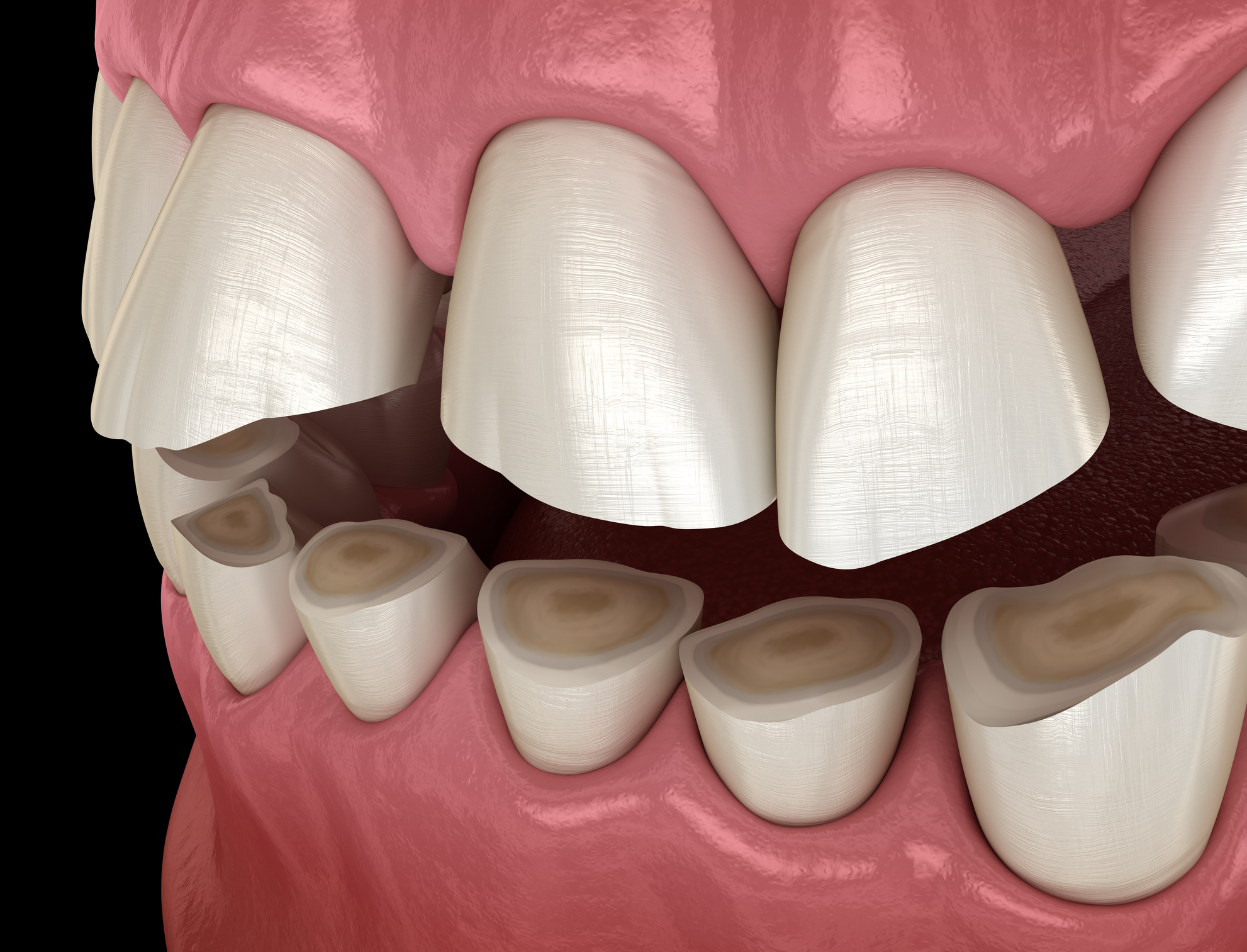
Effects of teeth grinding
Do you suffer from bruxism?
Do you grind your teeth? You might, without even knowing it. If you experience headaches, jaw pain, aching teeth, and throbbing temples, you may be grinding your teeth at night. Teeth grinding is a disorder known as bruxism, and it’s common, affecting as much as 30 percent of all people. Mild teeth grinding may not be a problem, but frequent or serious grinding can cause permanent mouth, jaw, or tooth damage if it’s not addressed. Here’s what you need to know.
The Dangers of Grinding Your Teeth
Tooth grinding can happen during waking or sleeping hours, and often, people don’t realize they’re doing it. Clenching your jaw without noticing or grinding and gnashing your teeth at night, though, can be damaging because the jaw can clamp down with 250 pounds of force. That much force can crack or break the teeth, as well as wearing down the enamel, and it can also cause chronic pain in the head, neck, and ears. Bruxism can lead to health problems like migraines, tinnitus, and sensitivity to noise, and some people even require a total joint replacement when the grinding gets so severe that it wears down the jaw cartilage.
Why Bruxism Happens
Sometimes, bruxism is a sign of stress. Clenching your muscles when you’re stressed, anxious, angry, or overwhelmed is a natural response, and if you are perpetually feeling those emotions, your clenched jaw can lead to nighttime tooth grinding. Certain medical conditions can lead to bruxism, like Huntington’s disease and Parkinson’s disease, and tooth grinding can also be the result of an existing sleep disorder. Sometimes, the medication you’re taking can cause you to grind your teeth. Antidepressants, antipsychotics, and amphetamines are all known causes of nighttime tooth grinding. If your teeth are misaligned, clenching and gnashing is even more likely to occur.
How do you know you’re doing it if you don’t know you’re doing it?
Your partner might be the first to notice, because bruxism can be noisy. Scraping, grinding, and clicking sounds can be loud enough to disrupt the sleep of a person sleeping in the same room as someone suffering from bruxism. Some people find they grind their teeth because of a dental visit. Grinding the teeth can wear them down, and sometimes the dentist is the first to notice. There are symptoms that you can catch, though, if you’re paying attention. Jaw pain and stiffness, tooth sensitivity, chipped or broken teeth, sore gums, clicking jaw joints, chronic headaches, earaches, or any evidence of excessive wear should prompt you to make an appointment with your dentist.
Preventing and Treating Bruxism
Your dentist is a powerful ally in the struggle with tooth grinding. Having a thorough dental exam can help you to determine the reasons you’re grinding your teeth, and your dentist can treat bruxism, sometimes with a measure as simple as a custom mouth guard you can wear while you’re sleeping. There are some steps you can take on your own, as well. Try employing stress reduction techniques, like deep breathing, mindfulness exercises, and yoga. Make sure your bedroom is your oasis, cool, dark, and quiet, with no TVs, computers, or phones. Try sleeping on your side or stomach, and work on daytime habits too, cutting back on caffeine and alcohol, avoiding chewing gum or biting on things that aren’t food, and establishing a relaxing bedtime routine. Physical therapy can help, especially through the use of massage, compresses, and mouth stretching exercises, and certain medications, like anti-inflammatory drugs or muscle relaxants, can be beneficial in treating bruxism.
Finding the Right Dentist
If you think your bruxism is causing issues, the first step towards fixing the problem is seeing a good dentist. If you’re looking for a dentist in New York, why not choose the dentist voted best in the city? At Park 56 Dental Group, we offer pediatric, prosthodontics, endodontics, oral surgery, Invisalign®, emergency, and sedation dentistry, all at the highest level of treatment. We serve the Midtown, Central Park, Upper East Side, Park Avenue, and all surrounding Manhattan and New York areas, with a patient-centered practice that has hours to fit your schedule. Schedule your complimentary consultation today by contacting us online or calling us at (212) 826-2322.
-
Understanding the Different Stages of Tooth Decay: From Early Signs to Advanced Damage
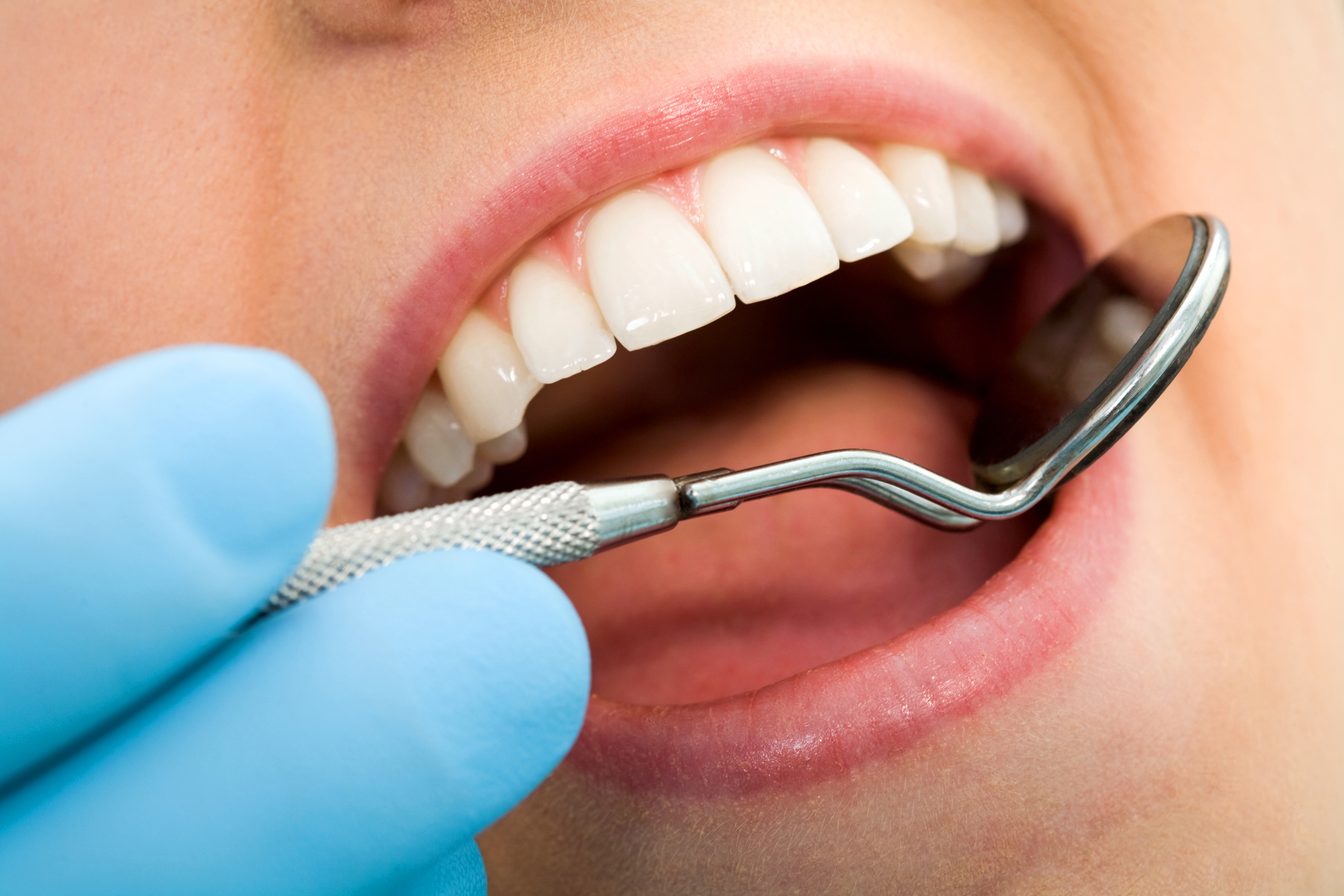
Checking for tooth decay
Understanding Tooth Decay
You know that your dentist looks for signs of tooth decay, and you probably know that good oral hygiene and a nutritious diet can help prevent it. What you may not know, however, is that tooth decay happens in five distinct stages. If you can catch it in the early stages, it can be reversed, so it pays to know what you’re looking for when you examine your teeth. Here, we discuss the five stages of tooth decay, from early signs to advanced damage.
The Five Stages of Tooth Decay
- Stage One- Demineralization: You might not realize it, but there are initial warning signs before a cavity develops. The outermost layer of your teeth is made of enamel, the hardest tissue in your body, which is made mostly of minerals. When the tooth is exposed to plaque, the acids caused by bacteria cause enamel to begin to lose minerals. This mineral loss can be seen as white, yellow, or brown spots on the teeth, which can easily be seen on the front teeth but are often missed on the molars.
- Stage Two- Enamel Decay: If the spots of demineralization go unnoticed or untreated, plaque buildup will begin to break down the enamel of the teeth. You might notice sensitivity, which is one of the first physical signs of damage. Weakened enamel can develop small holes known as cavities. This damage can’t be reversed, but a dentist can treat cavities with fillings, inlays, onlays, or crowns.
- Stage Three- Dentin Decay: Under the enamel is the dentin layer, with tissue that is much softer and more sensitive than enamel. As decay progresses, it can spread quickly along this layer, leading to tooth sensitivity and discoloration. Chewing food may become painful, and so can consuming hot or cold food or drinks.
- Stage Four- Pulp Infection: The innermost layer of the teeth is the pulp. This is the layer with the nerves and blood vessels that nourish the teeth and provide sensation. When pup is damaged, it can become inflamed and begin to swell, in a root canal infection. Root canal infections must be treated with endodontic therapy, removing the pulp, and capping the tooth, but if this isn’t an option, the tooth will need to be extracted.
- Stage Five- Abscess: This is the final stage of tooth decay, in which untreated decay spreads beyond the tooth. Bacteria invades the pulp and the surrounding tissues, causing an infection and a pocket of pus known as an abscess. The dentist will need to drain the pus carefully, after which the abscess can be treated with antibiotic and antiseptic medications.
What to Know About Kids and Tooth Decay
Children are more susceptible to tooth decay than adults, because the enamel of baby teeth is thinner than that of adults. In fact, according to the Centers for Disease Control and Prevention (CDC), tooth decay is among the most common childhood conditions in the United States. It might not seem like this is a particularly significant problem, since baby teeth eventually fall out, but it is very important to protect those little teeth. Children need their teeth for chewing and speaking, and baby teeth are the placeholders for adult teeth; losing them to decay can cause adult teeth to grow in incorrectly. To prevent childhood tooth decay, teach your children too brush their teeth thoroughly and limit sugary foods. Additionally, make sure your children have their first dental appointments by the time they turn one year old.
Preventing Tooth Decay
Good oral hygiene is the first line of defense against dental decay. Brush your teeth twice daily, floss regularly, and use mouthwash to reach the bacteria brushing and flossing can miss. Eating a nutritious diet and limiting sugar can help, and so can staying hydrated. See your dentist at least twice a year for checkups and cleanings, and so that the dentist can detect any early signs of decay. Talk to your dentist to find out if preventive measures like fluoride treatments and sealants are right for you.
Partner with Park 56 to Protect Your Teeth
If you’re looking for a dentist in New York, why not choose the dentist voted best in the city? At Park 56 Dental Group, we offer pediatric, prosthodontics, endodontics, oral surgery, Invisalign®, emergency, and sedation dentistry, all at the highest level of treatment. We serve the Midtown, Central Park, Upper East Side, Park Avenue, and all surrounding Manhattan and New York areas, with a patient-centered practice that has hours to fit your schedule. Schedule your complimentary consultation today by contacting us online or calling us at (212) 826-2322.
Park 56 Dental Group_1830990_Blog_August_2023_How to Choose the Right Toothpaste for Your Unique Dental Needs
Meta description: With so many toothpastes on the market, how do you know which to choose? Park 56 Dental Group offers tips on choosing the right toothpaste for you.
How hard can it be to choose a toothpaste?
How do you go about choosing a toothpaste? It seems like it should be easy! Once you get to the store, though, it’s easy to be overwhelmed by all the options. With so many toothpastes from which to choose, how do you pick the right one? Here, we offer some helpful tips for choosing the right toothpaste for your unique dental needs.
Know the Basics
Toothpastes contain abrasive agents, flavoring agents, detergents, humectants, and detergents, and are available in gel, paste, powder, or tablet forms. There are two important things to look for in a toothpaste: fluoride and the ADA seal of approval. Fluoride has been proven to protect against tooth decay and help to remineralize teeth, and the ADA (American Dental Association) must verify that a product is effective before that product can display the seal of approval.
Evaluate Your Dental Needs
Think about what you want a toothpaste to accomplish for you beyond just cleaning your teeth. Some common concerns include bad breath, sensitive teeth, plaque, gum disease, tartar, and yellowing teeth. Once you have assessed what you need, look for a toothpaste that fits with your concerns.
- Preventing cavities: Fluoride is a major factor in preventing cavities and strengthening enamel. Choose a toothpaste with mild abrasives, like hydrated silica or calcium carbonate, to remove plaque and surface stains without damaging enamel.
- Tartar control: Bacteria can cause biofilm on the teeth, and this can lead to plaque. When biofilm traps salivary calcium and phosphate, it crystallizes into tartar, also called calculus. While this is removed by the dental hygienist during your cleanings, it can be helpful to use a tartar control toothpaste in between visits. These toothpastes typically contain ingredients like zinc citrate and triclosan.
- Sensitivity: Dental pain is typically due to dentin hypersensitivity. Toothpastes with potassium and fluoride can help with sensitivity, as can toothpastes with strontium chloride, calcium carbonate, or arginine. Using desensitizing toothpaste for at least eight weeks can help reduce dental pain.
- Gum disease prevention: Toothpaste with ingredients that have antibacterial properties, like triclosan or stannous fluoride, can help prevent gum disease by reducing plaque and gum inflammation.
- Controlling bad breath: Brush your teeth for two to three minutes, at least twice a day, with a fluoride toothpaste. Brush your tongue from back to front, or use a tongue scraper. Baking soda can be effective for eliminating halitosis (bad breath), either in a baking soda toothpaste or on its own.
- Whitening teeth: There are several whitening toothpastes on the market, with bleaching ingredients like silica, pyrophosphates, and hydrogen peroxide. Hydrogen peroxide is a good option because it is gentle and won’t cause irritation in your mouth. If you do experience any uncomfortable symptoms, contact your dentist.
Choosing a Toothpaste for Children
Children over age six typically use adult toothpaste. Before that, as long as the toothpaste meets the fluoride and ADA seal requirements, you can choose a fun toothpaste for your children, to encourage them to brush frequently. Look for fun flavors, sparkles and swirls, or toothpaste in a container decorated with fun characters or superheroes. Make sure, though, that you teach children to spit out the toothpaste instead of swallowing it, because ingesting toothpaste can lead to chronic fluorosis for kids.
Partner with the Dentist Voted Best in New York
If you’re looking for a dentist in New York, why not choose the dentist voted best in the city? At Park 56 Dental Group, we offer pediatric, prosthodontics, endodontics, oral surgery, Invisalign®, emergency, and sedation dentistry, all at the highest level of treatment. We serve the Midtown, Central Park, Upper East Side, Park Avenue, and all surrounding Manhattan and New York areas, with a patient-centered practice that has hours to fit your schedule. Schedule your complimentary consultation today by contacting us online or calling us at (212) 826-2322.
-
Emergency Dental Care
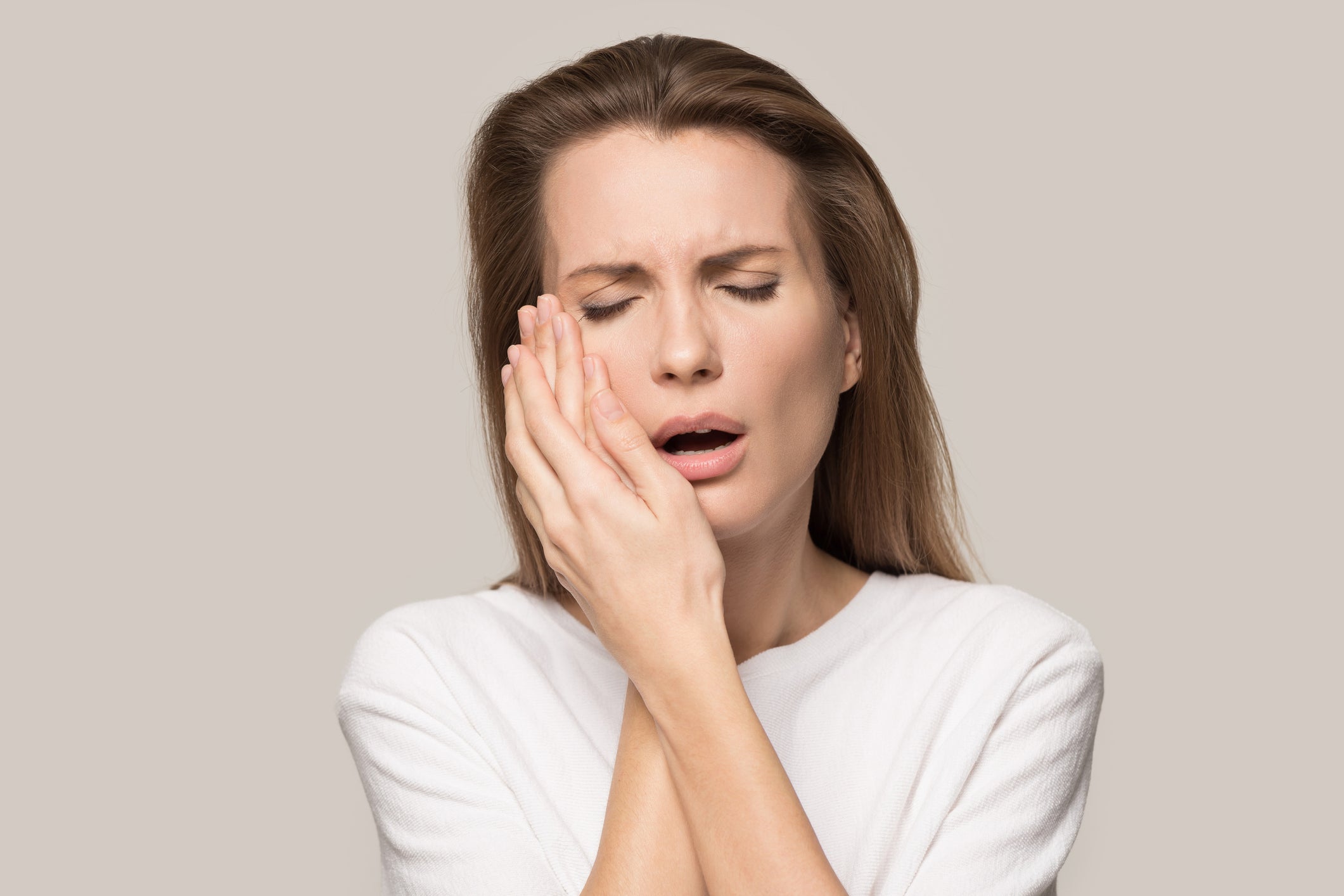
Woman Suffering From Dental Emergency
It’s natural to feel alarmed when you experience a toothache or get hit in the mouth. Is the pain a minor annoyance, or are you about to face a dental emergency? Understanding the difference between urgent and non-urgent dental scenarios helps you act quickly when necessary to maintain your radiant smile.
Deciding If it’s a Dental Emergency
Dental emergencies come in many forms. Some issues require immediate attention to alleviate pain and improve the chances of saving a damaged tooth. Watch for these symptoms of a dental emergency:
- Intense toothache
- Excessive bleeding
- Trauma to the face
- Loose or knocked-out tooth
- Broken or chipped tooth with a large chunk missing
Other issues aren’t a major cause for concern and can wait for a regular appointment. Examples of non-urgent situations include:
- Lost filling or crown
- Cracked tooth without pain or sharp fragments
- Mild toothache with no other symptoms
The Crucial First Response
If you determine you’re having a dental emergency, knowing how to respond is crucial. Follow these tips until you can get to an emergency dentist:
- Treating a toothache: Rinse your mouth with warm water and gently floss to remove trapped food. If the pain persists, take over-the-counter pain relievers. Then, book a dentist appointment to find out what’s wrong.
- Treating excessive bleeding: Rinse with a saltwater solution. Then, apply a clean, damp piece of gauze or a cool, used tea bag to the area. If bleeding continues after 15 to 20 minutes, seek medical help.
- Treating a loose tooth: A loose tooth in adults is not normal. Avoid wiggling it to prevent further damage, and contact your dentist for a professional evaluation.
- Treating a knocked-out tooth: Handle the tooth carefully. Avoid touching the root, rinse it with water if dirty, and try reinserting it into its socket. If that’s not possible, store the tooth in a container of milk or use a tooth preservation kit and go to the dentist immediately.
- Treating a broken, cracked, or chipped tooth: Rinse your mouth with warm water and apply a cold compress. Over-the-counter pain relievers minimize discomfort. Contact your dentist right away, even if there’s no pain, because the tooth may be damaged internally.
The Role of an Emergency Dentist
An emergency dentist handles urgent cases with the proper tools and training. From antibiotics for infections to quick dental procedures for saving a knocked-out tooth, these professionals provide immediate relief and ensure long-term oral health.
Park 56 Dental is your go-to provider for same-day emergency dental care. We have served patients in the 10022 zip code and surrounding areas since 1997. We even boast the title of NYC’s best dentist. Our office feels more like a spa, and we focus on giving personalized, quality dental care to each patient. Our team has experience with everything from general dentistry and sedation dentistry to oral surgery and endodontics.
The next time a dental emergency strikes, you can count on us! Call Park 56 Dental at (212) 826-2322, and we’ll help you get your oral health back on track.
-
How to Care for Dental Veneers

If you’re looking to improve your smile, dental veneers are a great way to do it. But like anything else, proper care is essential to get the most out of your dental veneers. Park 56 Dental in New York can help you understand how best to take care of them so that they look their best and last as long as possible. Here’s what you need to know about taking care of your dental veneers.
What Are Dental Veneers?
Dental veneers are small pieces of porcelain or composite material that are custom-made to fit over the front surfaces of your teeth. They can be used to cover chips, discoloration, gaps between teeth, or other minor issues with your smile. Veneers can also help improve the alignment and shape of your teeth while providing a natural-looking result.
Avoid Grinding and Clenching Teeth
Veneer-related tooth damage is most often caused by grinding or clenching the teeth excessively. This type of wear-and-tear is often caused by stress and can cause damage to both natural and veneered teeth if left unchecked. If you have been grinding or clenching your teeth, it’s important to visit Park 56 so one of our dentists can assess the situation and come up with a plan for treatment.
Use Veneer-Friendly Toothpaste
It’s also important that you use toothpaste that’s specifically designed for people who have veneers on their teeth—these products are specially formulated not to damage dental work like composites or porcelain restorations. Our team at Park 56 can recommend specific products that won’t damage your veneers while still delivering excellent cleaning power!
Daily Maintenance
The best way to extend the life of your dental veneers is to practice good oral hygiene every day. This means brushing twice a day for two minutes each time, flossing at least once a day, and using an antiseptic mouthwash when needed. Make sure to use gentle strokes when brushing and avoid hard-bristled toothbrushes that may scratch the surface of your veneers.
Regular Checkups
It’s important to visit Park 56 Dental regularly for checkups, cleaning, and maintenance—at least twice a year—to ensure that your teeth are healthy and that your veneers look their best. During these visits, our professionals will check for signs of decay or damage and provide advice on how you can continue caring for your dental veneer investment. In addition, they can also repair or replace any damaged or worn-out veneers if necessary.
Avoid Certain Foods
You may still be able to enjoy some unhealthy foods such as candy or chips after getting dental veneers, but there are some foods that should still be avoided whenever possible to protect them from staining or cracking. Hard foods like nuts and apples should be chopped into smaller pieces before eating; sticky treats like chewing gum should be avoided altogether; acidic drinks such as coffee or soda should be consumed with caution; and darkly pigmented foods like blueberries can leave stains behind if not properly rinsed away afterwards.
Schedule an Appointment with Park 56 Dental Today!
With proper maintenance and regular checkups at Park 56 Dental in New York City, your dental veneers will stay looking beautiful for years to come! Taking just a few simple steps each day can extend the life of your investment significantly while helping you maintain a healthy smile overall. So don’t hesitate—contact us today if you have any questions about taking care of your dental veneers!
-
The Most Common Dental Problems

Good dental hygiene is essential for maintaining a healthy smile, but even the most diligent brushers and flossers are still prone to common dental problems. At Park 56 Dental in New York, we believe that knowledge is power when it comes to protecting your teeth and gums. Read on to learn more about the most common dental issues, as well as tips for preventing them.
Cavities
Cavities occur when bacteria build up on teeth and produce acid that breaks down enamel, leading to a hole in the tooth. Many people mistakenly believe that only children get cavities, but adults can suffer from them as well. The best way to prevent cavities is to brush and floss regularly, use mouthwash after meals, eat healthy foods low in sugar and starch, and maintain regular check-ups with your dentist.
Gingivitis
Gingivitis is an inflammation of the gums caused by an accumulation of plaque at the gum line. It can lead to redness or swelling of the gums, bleeding while brushing or flossing, bad breath, and receding gums. To prevent gingivitis, make sure you’re brushing twice a day for two minutes each time using proper technique; use interdental cleaners such as picks or brushes; rinse daily with an antiseptic mouthwash; avoid smoking; and schedule regular dental cleanings every 6 months at Park 56 Dental in NYC.
Tooth Decay
Tooth decay occurs when bacteria builds up on tooth enamel due to poor oral hygiene habits or diet. It can cause sensitivity in cold or hot foods/drinks, pain when chewing food or biting down on hard objects like ice cubes or pens, discoloration of teeth (brown spots), visible holes in teeth (cavities), and bad breath. To reduce your risk of tooth decay, make sure you are:
- Brushing twice a day for two minutes each time with fluoride toothpaste.
- Flossing daily.
- Eating healthy foods low in sugar/starch.
- Avoiding sugary drinks like soda.
- Scheduling regular checkups with your dentist.
- Rinsing your mouth out with water after consuming any sugary snacks/drinks.
Stained Teeth
Stained teeth are often caused by drinking coffee, tea, or wine, smoking cigarettes, or cigars, or eating brightly colored foods like blueberries. They may also be caused by aging; as we get older, our enamel thins out and our teeth become more yellow or grayish in color.
Chipped Tooth
Chipped teeth occur when something hits your tooth hard enough for it to break off. This can lead to pain and swelling around the affected area if the nerve endings are exposed. A dentist at Park 56 Dental can fix it using bonding materials or a crown.
Impacted Teeth
An impacted tooth is one that doesn’t have enough room to grow properly due to overcrowding or misalignment of the other teeth in your mouth. Impacted teeth often appear crooked or stuck in place and may cause pain while eating or talking. If this happens, it’s best to see your dentist right away so they can assess the situation and recommend a treatment plan for you.
Cracked Tooth
A cracked tooth occurs when something hard hits your tooth with enough force to cause it to crack or break into pieces. This type of damage can range from extremely small cracks that don’t cause any pain but still need attention from your dentist at Park 56 Dental, all the way up to large cracks that require an emergency visit and possibly even root canal therapy.
Schedule an Appointment with Park 56 Dental Today!
Taking good care of your teeth is essential for maintaining good oral health over the long term and preventing more serious problems from developing down the road. By following these tips—and scheduling regular check-ups with Park 56 Dental in NYC—you can help ensure that your smile stays healthy now and into the future!
-
Simple Ways to Motivate You to Floss Every Day
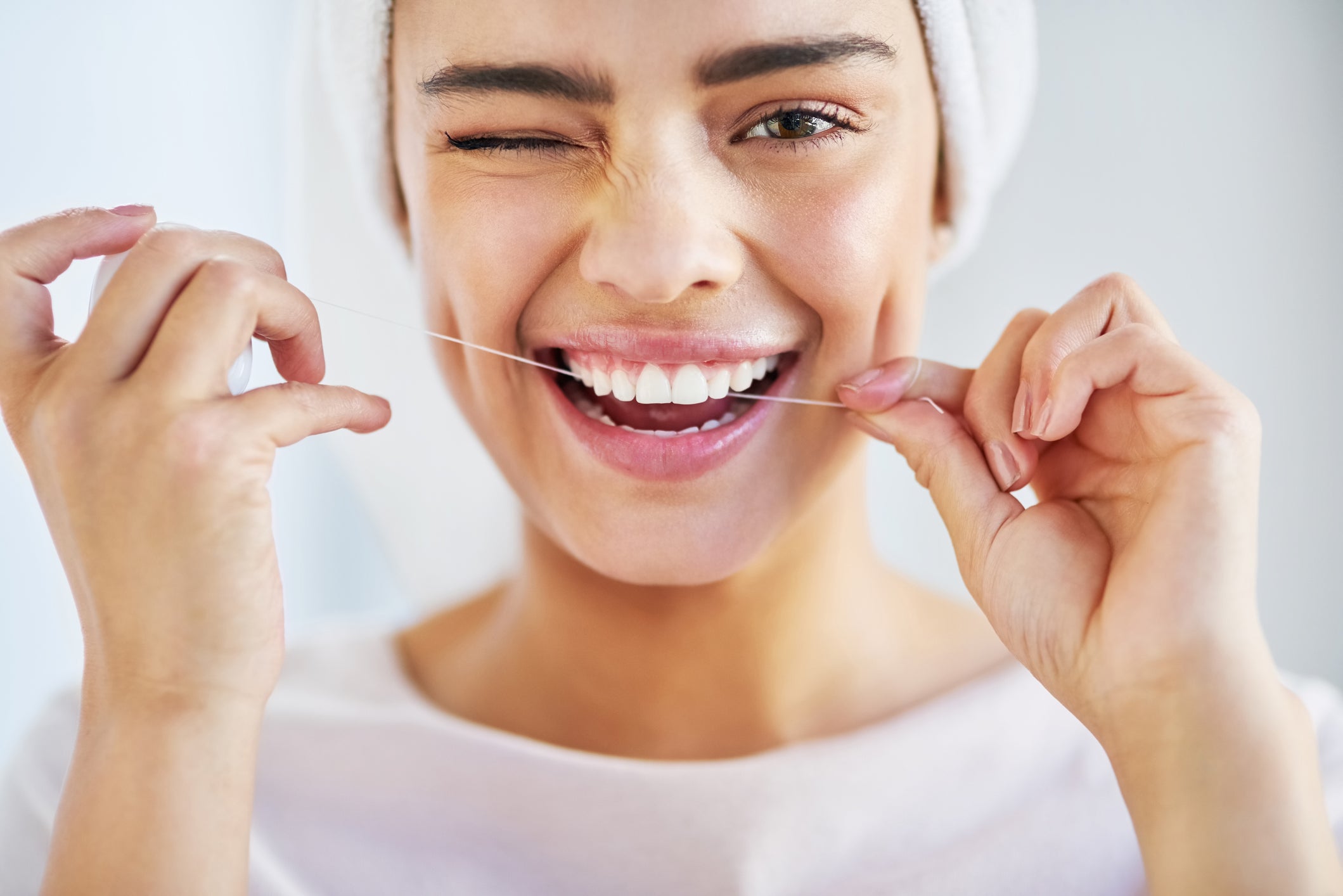
Good oral hygiene is important for a healthy mouth, and one of the most effective ways to achieve it? That’s right—flossing! Flossing is one of the most important habits you can adopt to maintain good oral health. According to research, only 4 out of 10 adults floss daily and only 1 in 3 actually flosses correctly. Daily flossing helps prevent cavities, gum disease, and bad breath. But sometimes it’s hard to remember to do it every day. So here are some simple motivators that might help you get into the habit of regular flossing.
Find a Flossing Product That Works for You
The type of floss you use matters! Many people don’t realize that different types of floss work differently for different types of teeth and mouth needs. Waxed, non-waxed, disposable floss sticks, electric or water flossers—there are so many options available! If one type of product isn’t working well with your teeth and gums, try another! Experiment with different products until you find the perfect one for your personal oral hygiene routine.
Keep Your Floss in Sight
If you have your dental floss handy, you are more likely to remember to use it every day! Try keeping an extra package at the office or even in your pocket or purse wherever you go. You should also keep a container on the sink or bathroom countertop as a constant reminder that it’s time to floss every day!
Set A Goal
One of the best ways to make sure you stick with something is to set a goal. Make a goal that you can realistically achieve, like “I will floss at least twice a week for the next month.” Once you reach that goal, reward yourself by doing something special or purchasing something nice! This will help motivate you to keep going and eventually make daily flossing part of your routine.
Create A Chart
If setting goals isn’t quite your thing, another way to motivate yourself is by creating a chart or calendar that tracks your progress. Every day after you floss, mark it off in your chart or on your calendar as a reminder that you achieved your goal for the day. Seeing this progress can give you an added boost of motivation and encouragement!
Use A Reminder App
If neither of these methods seem like they’d work for you, consider downloading a reminder app onto your phone or laptop. With this type of app, all you have to do is set the time when you want it to remind you each day–it could be right before bedtime, so it becomes part of your nighttime routine–and then just follow through with the action when the reminder goes off!
Get Flossing!
Flossing every day is an important part of maintaining good oral hygiene and overall health. And while remembering to do it can be difficult at times, there are several easy strategies available that can help motivate and remind us so that we don’t forget! Whether it’s setting goals and rewarding yourself for reaching them, using visuals like charts and calendars, or using apps on our phones for reminders—these simple strategies can help ensure we stick with our daily flossing routine.
If any questions remain about flossing or other dental-related topics such as teeth whitening services offered at Park 56 Dental in New York City, please contact us today!
RECENT POSTS
categories
- Uncategorized
- Cosmetic Dentistry
- Veneers
- Healthier Teeth
- Teeth Whitening
- Dental Health
- Video
- Dental Emergencies
- Invisalign
- Dental Implants
- Root Canal
- Sedation Dentistry
- Infographic
- Dental Crowns and Bridges
- Dental Anxiety
- Gum Disease
- COVID-19
- Bad Breath
- New York Dentist
- Cut out sugar
- General Dentistry
- Oral Health
- Oral Cancer
- Dry Mouth
- Gum Health
- Toothache
- Dental Sealants
- Cavities



